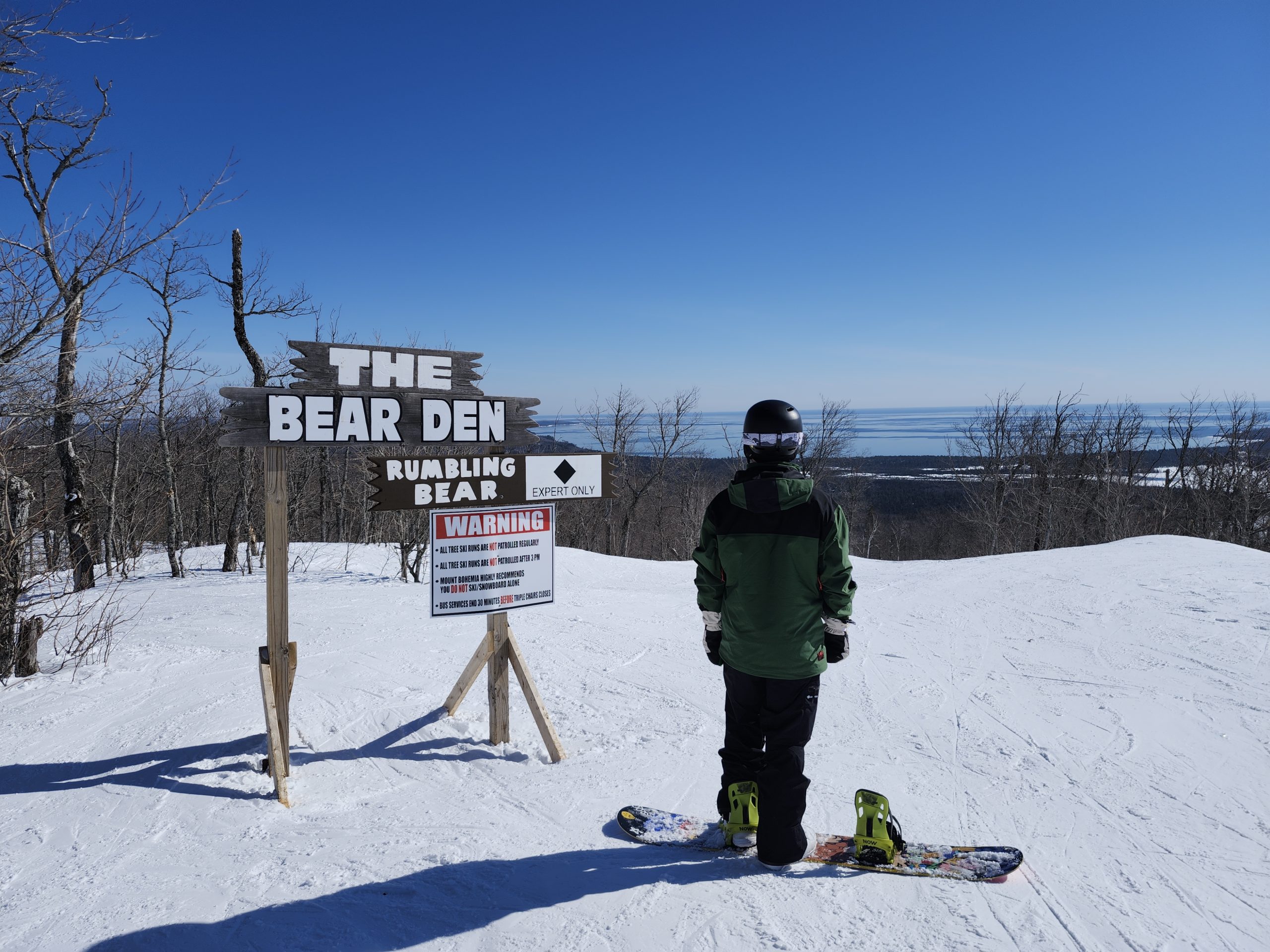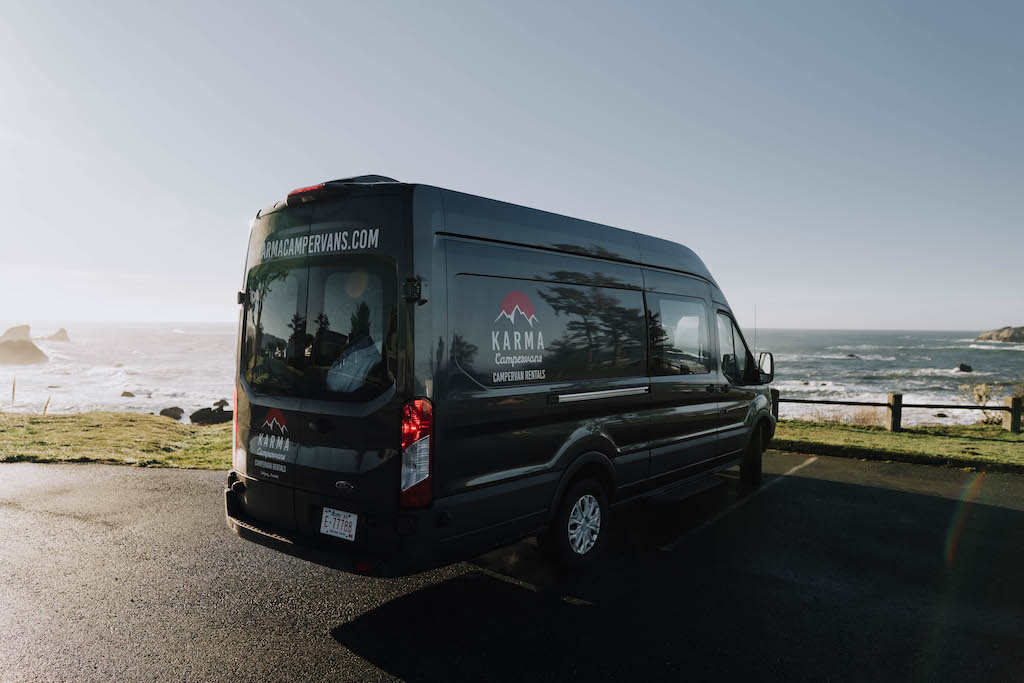Camper Safety in Canadian Campgrounds
Camping is all fun and games until someone runs into an animal on the trails! We want all our Karma campers to be safe while exploring, so here’s a few tips to consider before your next road trip.
Animal Encounters
If you’ve travelled in Canada’s western provinces, you’ve likely seen cars pulled over along the side of the road trying to catch a glimpse of wildlife just out of reach. People pull out their cameras to snap photos of bears, moose, and other four-legged creatures.
Although unlikely, unfortunate animal encounters are entirely possible when visiting Canadian parks and campgrounds. A rare wolf attack inspired increased camper safety among many staying in Banff National Park recently. Note: this type of event is not normal and the wolf’s poor condition was credited as a catalyst to the incident.
We can reason all we want, but the point is it’s good to be prepared for the worst case scenario when enjoying Canada’s outdoors alongside wildlife.
Wildlife safety tips when camping in Canada:
- Bring bear spray.
- Keep your campsite clean. Properly dispose of garbage, put away all food items when not in use, don’t sleep in the clothes you cooked in. Anything with a scent should be stored in the vehicle.
- Make lots of noise when hiking to keep animals alert and at bay
- Don’t feed any animals! Not even the small and docile ones like chipmunks. Food debris might attract larger ones and it’s against the law. Just ask the guy who was fined $2,000 for feeding a bear Tim Horton’s donuts.
Campgrounds will have a list of their specific safety precautions as well as any recent warnings at the park entrance. Always check this before getting settled.
Road Safety
Many of Canada’s best parks are found off the beaten path, a ways down winding roads with little cell phone reception. Road safety is extremely important in and around these parks, even in the summer months when the route is clear.
Road safety tips when exploring Canada’s parks:
- Always obey the speed limit.
- Keep an eye out for wildlife on the road.
- Don’t stop suddenly to watch wildlife on the side of the road.
- Avoid sudden and abrupt turns or stops which could damage or throw interior items.
- Drive cautiously on winding roads.
- Pull over at designated viewpoints so you can focus on driving in between.
- Obey overnight parking rules.
Side note: always watch the weather! Driving conditions can change quickly, especially in the Rocky Mountains. You never know when hail might hit—even in the summer. In the shoulder season and winter months, give yourself extra time to get from point A to B. You never know what might cause delays along the way. Although rare, avalanches, snow storms or land slides cause road closures, for example.
Cold Weather Camping
Off season camping isn’t for everyone, but it sure is fun! It’s a lot easier in a campervan than in a tent (hint, hint—Karma offers discounted rates in the winter). Even in a hard shell camper or RV, you still need to be prepared.
Items to pack or pick up when cold weather camping in Canada:
- Warm and wind/water resistant gear. Even if the forecast calls for mild weather, things change quickly in the fall, winter, and spring.
- Plan B for if the heater quits such as a place to sleep or plug in the emergency battery charger
- Cold weather clothes for sleeping in.
- Bring extras of anything that might get wet.
- Healthy food and nutrient-rich snacks.
- Extra fire starter or lighter, wood, and paper.
Fire Safety
First things first, never light a fire during a fire ban. These bans are placed for a reason—to preserve our parks in unsafe, dry times and prevent the risk of local towns being destroyed during an outbreak.
Fire safety tips when camping:
- Keep your fire under control.
- Avoid using gas or extreme amounts of starter fluid.
- Keep pets away from the fire and never leave them unattended.
- Ensure your fire is out before leaving your campsite or going to sleep.
- In campgrounds with large wildlife like bears and wolves, don’t burn any food items in the fire pit. If any pieces are left behind, this might attract them.
- Follow firewood transportation rules to prevent the spread of diseases and contaminants in certain woods.
First Aid
Always bring a first aid kit when camping in Canada! You never know what might happen when spending time out in the wild. We do provide fire extinguishers in all rental vans, but campers are responsible to bring their own first aid kits.
Your first aid kit should include:
- Gauze and bandages of all shapes and sizes
- Adhesive tape
- Safety pins
- Tweezers and scissors
- Disposable gloves
- Cleansing wipes and antiseptic cream
- Distilled water
- Eye wash
- Skin rash cream, antihistamine, painkillers
- Flashlight and batteries
- Instant ice packs
- Thermometer
- Emergency blanket
It’s also a good idea to consider bringing an emergency supply kit on any road trip. This could include extra water and canned, easy to prepare food, photocopies of important documents and contact information.
We know, it’s a lot to digest! Safety first if you want to have fun camping in Canada.
Share:
Recent Posts
Booking Coordinator
Exploring Southern Ontario: A 3-Day Campervan Road Trip
Categories
Things To Do
Campground Guides
Road Trip Routes
Winter Camping
Deals
Vanlife
Company Updates
Related Posts



Booking Coordinator

Exploring Southern Ontario: A 3-Day Campervan Road Trip
Let Karma Campervans be a part of your next adventure
Choose Karma Campervans for your next Canadian adventure – Pick a route or destination and let Karma’s affordable RV rental options be a part of your journey.

